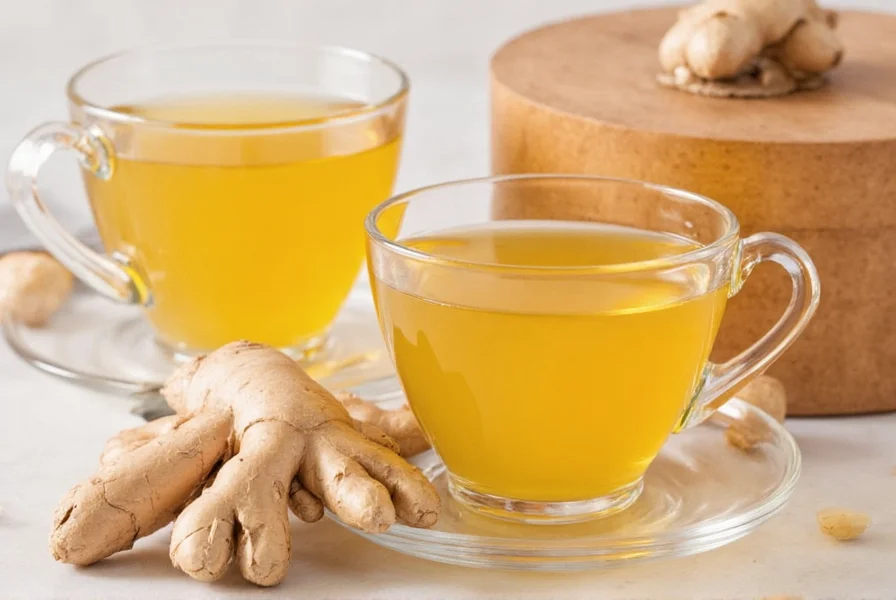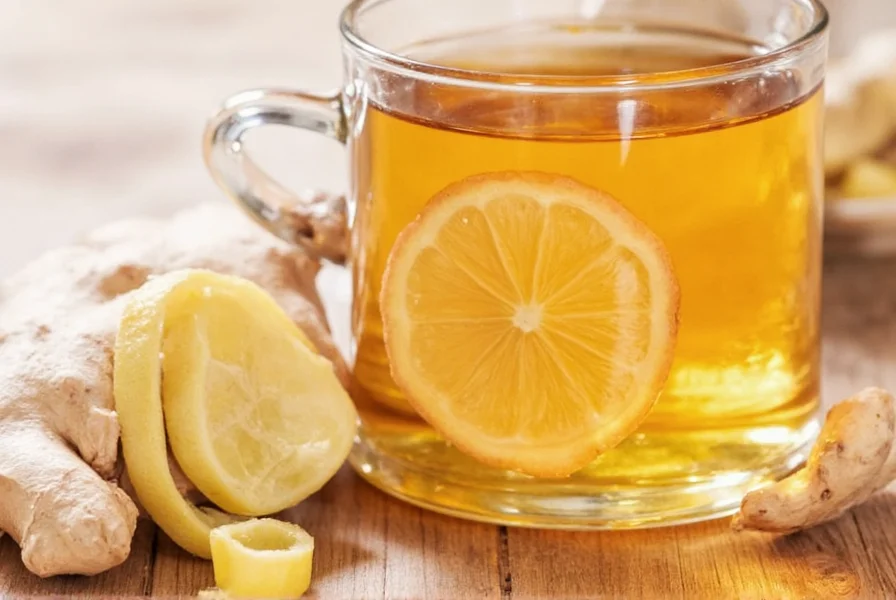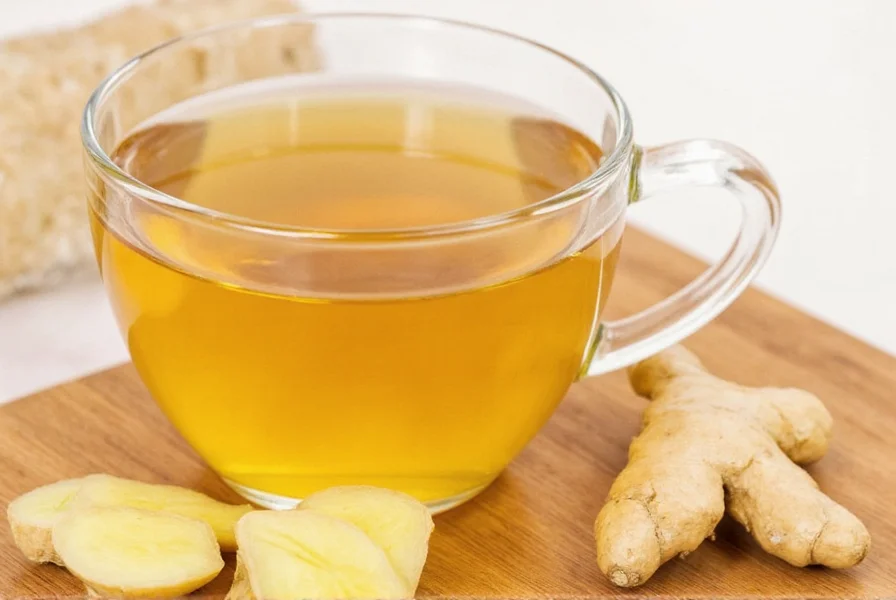Many people search for natural ways to support their weight management efforts, and ginger tea has gained popularity as a potential aid. While it's not a magic solution, research suggests ginger may offer modest benefits when incorporated into a comprehensive approach to healthy living.
Understanding Ginger's Role in Weight Management
Ginger contains bioactive compounds like gingerol that may support metabolic health. A 2018 review published in the Journal of Complementary and Integrative Medicine found ginger supplementation showed potential effects on weight management, though more research is needed specifically on ginger tea consumption.
It's crucial to understand that ginger tea works best as part of an overall strategy that includes:
- Balanced nutrition with appropriate calorie intake
- Regular physical activity
- Adequate hydration
- Sufficient sleep
- Stress management
Ginger tea shouldn't be viewed as a standalone weight loss solution but rather as a supportive element in your healthy lifestyle.
Simple Ginger Tea Recipe for Weight Management
This basic recipe provides a foundation you can customize based on your preferences while maintaining its potential benefits for weight management.
| Ingredients | Quantity | Preparation Notes |
|---|---|---|
| Fresh ginger root | 1 inch (2.5 cm) | Peel and thinly slice for maximum extraction |
| Water | 2 cups (480 ml) | Filtered water recommended |
| Lemon | 1/2, sliced | Add after boiling for vitamin C boost |
| Honey (optional) | 1 teaspoon | Use sparingly if needed; stevia is a lower-calorie alternative |
Step-by-Step Preparation
- Peel and thinly slice 1 inch of fresh ginger root
- Bring 2 cups of water to a rolling boil in a small saucepan
- Add the ginger slices and reduce heat to medium-low
- Simmer uncovered for 10-15 minutes (longer for stronger flavor)
- Remove from heat and let steep for an additional 5 minutes
- Strain into a mug using a fine mesh strainer
- Add lemon slices and optional sweetener
- Enjoy while warm

Optimizing Ginger Tea for Weight Management
To maximize potential benefits while avoiding common pitfalls, consider these evidence-based recommendations:
Timing Matters
Drinking ginger tea 20-30 minutes before meals may help with portion control by promoting feelings of fullness. Some research suggests consuming ginger before exercise might enhance fat burning during physical activity.
Frequency Guidelines
For weight management purposes, 1-2 cups daily is sufficient. More than this doesn't necessarily provide additional benefits and could cause digestive discomfort in sensitive individuals.
Healthy Additions
Enhance your ginger tea with these weight-friendly additions:
- Lemon juice: Adds vitamin C without significant calories
- Cinnamon: May help regulate blood sugar levels
- Green tea: Combine with ginger for potential synergistic effects
- Fresh mint: Provides refreshing flavor without added calories

Safety Considerations and Limitations
While ginger tea is generally safe for most adults, certain considerations apply when using it for weight management:
Potential Side Effects
Excessive ginger consumption (more than 4 grams daily) may cause:
- Mild heartburn
- Stomach discomfort
- Diarrhea in sensitive individuals
- Interactions with blood-thinning medications
Who Should Consult a Doctor First
Certain individuals should speak with healthcare providers before adding ginger tea to their weight management routine:
- People taking blood thinners or diabetes medications
- Those with gallstone disease
- Pregnant women (especially in the third trimester)
- Individuals scheduled for surgery within two weeks
Realistic Expectations for Weight Management
It's essential to maintain realistic expectations about ginger tea's role in weight management. The most effective approach combines:
- Moderate calorie deficit through balanced nutrition
- Regular physical activity (150 minutes weekly)
- Adequate protein and fiber intake
- Sufficient sleep (7-9 hours nightly)
- Stress reduction techniques
- Supportive beverages like ginger tea as complementary elements
Ginger tea may provide modest support through potential effects on digestion, metabolism, and appetite regulation, but it won't produce significant weight loss on its own. Sustainable weight management requires comprehensive lifestyle changes rather than relying on single "miracle" solutions.
Frequently Asked Questions
Does ginger tea actually help with weight loss?
Ginger tea alone won't cause significant weight loss, but research suggests it may support weight management efforts. Studies indicate ginger's bioactive compounds might modestly enhance metabolism, reduce inflammation, and promote feelings of fullness. For best results, incorporate ginger tea as part of a comprehensive approach including balanced nutrition and regular exercise.
When is the best time to drink ginger tea for weight management?
The optimal times to drink ginger tea for weight management are 20-30 minutes before meals to potentially enhance satiety and before exercise to possibly support fat burning. Morning consumption may help kickstart metabolism, while an evening cup (without stimulating additions) can support digestion. Limit to 1-2 cups daily to avoid potential digestive discomfort.
Can I drink ginger tea every day for weight loss?
Yes, you can safely drink 1-2 cups of ginger tea daily as part of a weight management plan. However, consuming excessive amounts (more than 4 grams of ginger daily) may cause digestive issues. For sustainable results, combine daily ginger tea consumption with balanced nutrition, regular physical activity, and other healthy lifestyle habits rather than relying on it as a standalone solution.
What's the difference between fresh and dried ginger for weight loss tea?
Fresh ginger generally contains higher concentrations of gingerol, the primary bioactive compound, compared to dried ginger. When making ginger tea for weight management, fresh ginger provides more potent flavor and potentially greater benefits. Use 1 inch of fresh ginger root per 2 cups of water, while dried ginger powder requires only 1/2 teaspoon for similar strength. Fresh ginger also offers more natural hydration benefits.
How long does it take to see weight loss results from ginger tea?
You shouldn't expect immediate weight loss results from ginger tea alone. Any potential effects would be modest and gradual, typically noticeable after several weeks of consistent consumption as part of a comprehensive weight management plan. Significant weight loss requires creating a calorie deficit through diet and exercise, with ginger tea serving as a supportive element rather than a primary driver of results.











 浙公网安备
33010002000092号
浙公网安备
33010002000092号 浙B2-20120091-4
浙B2-20120091-4